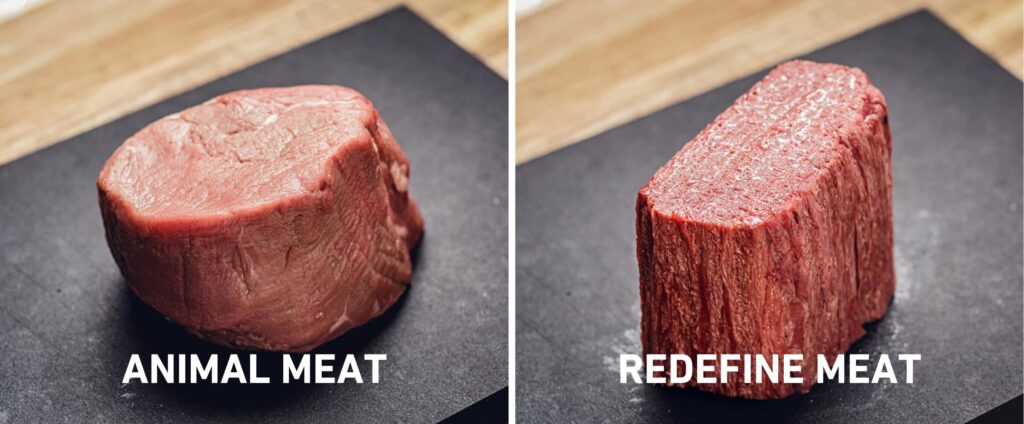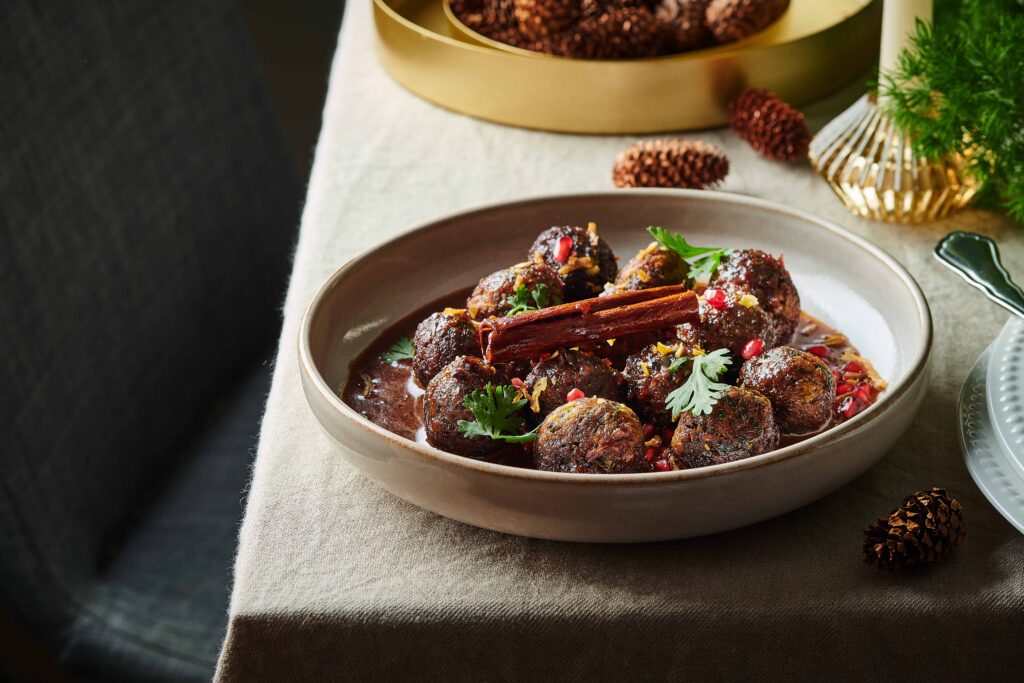From today.com
The January challenge asks people to go vegan for a month. With lots of plant-based milks, meats and cheeses, it may be easier than ever
Veganuary is your chance to try a vegan diet, lose weight and explore new foods in the new year.
The campaign invites people to try a meat-free and dairy-free plant-based diet in January. With plant-based milks and meats widely available in grocery stores and restaurants — and plenty of vegan recipes to guide the way — it may be easier than ever.
Plant-based cheeses have also come a long way and are now "excellent in flavour, texture and nutritional punch," registered dietitian Heather Martin says. There's even a plant-based Kraft NotMac&Cheese.
The vegan diet could save you about $650 per year on food costs, mainly attributable to savings on meat, researchers reported in 2024.
Just 1% of Americans say they are vegan, according to Gallup. Veganuary hopes to change that. The goal is to embrace a vegan diet “for January and beyond,” according to the British nonprofit organization behind the effort.
It estimates 25 million people around the world tried the vegan lifestyle in January 2024.
High-profile Veganuary ambassadors include singer Billie Eilish, "Joker" star Joaquin Phoenix, actors Alicia Silverstone and Mayim Bialik, and musician Paul McCartney, the campaign said.
What is a vegan diet?
A vegan diet means omitting all animal products including meat, fish, poultry, dairy, eggs and even honey.
Instead, vegans load up on vegetables, fruits, whole grains, beans, lentils, nuts, seeds and soy like tofu, edamame and tempeh.
Studies have found a vegan diet could lead to weight loss, boost psychological well-being and potentially improve most people’s health.
Plant-based diets "appear beneficial" in reducing cardiometabolic risk factors, heart disease, cancer risk and mortality, according to a 2024 review of studies.
When identical twins, 22 pairs in all, were randomly assigned to eat either a healthy vegan or a healthy omnivorous diet for eight weeks, those who ate vegan showed "significantly improved" LDL cholesterol levels and fasting insulin compared with their twin who ate animal products, a 2023 study published in JAMA Network Open found.
The vegans also lost more weight — about 4 pounds more on average than the omnivores. Some of the twins were featured in a Netflix documentary and said they would change their diet after taking part.
The findings suggest "anyone who chooses a vegan diet can improve their long-term health in two months, with the most change seen in the first month," said Christopher Gardner, Ph.D., senior author of the study and professor of medicine at Stanford University, in a statement.
A healthy plant-based diet offers a "significant protective cardiometabolic advantage" compared with a healthy omnivorous diet, the study noted.
Many vegans also follow the regimen because of concerns about animal welfare and the environment.
What do dietitians think of Veganuary?
Nutritionists tend to be fans of people exploring a plant-based diet, but sceptical of just diving into the vegan lifestyle for a month without much preparation or modification.
The name is catchy, but Veganuary is not a realistic goal for most people, says NBC News health and nutrition editor Madelyn Fernstrom, Ph.D.
“It’s very rigid, and while it can be healthy, the interested-but-uneducated consumer is at risk for nutritional deficiencies,” Fernstrom tells TODAY.com.
“The risk of vitamin B12 deficiency is high, along with calcium and sometimes adequate protein intake. A strictly vegan diet takes a lot of preplanning and wide selection of plant based foods.”
Research links going meat-free to an increased risk of bone fractures.
The study of twins also found those eating vegan had a “lower dietary satisfaction" and a lower intake of protein as a percentage of calories.
Going this extreme all at once can actually turn people off, so making just a few changes may be better, says Beth Kitchin, a registered dietitian nutritionist and retired assistant professor of nutrition at the University of Alabama at Birmingham.
“A vegan diet can be very healthy, but it’s not easy. Easing into it may give you better long-term benefits, because you might get frustrated if you just jump in full force,” Kitchin says.
Still, Veganuary is worth a try if you want to test-drive this lifestyle, adds Ashley Gearhardt, a psychology professor at the University of Michigan and director of its Food and Addiction Science & Treatment Lab.
A 30-day trial run can change people’s behaviour, Gearhardt notes, but she was concerned most would replace meat and cheese with “ultra-processed vegan junk food” filled with sugar, fat and salt, and think they were eating healthy.
“Spending all month eating vegan hot dogs, vegan ice cream and vegan french fries is not going to improve health,” Gearhardt warns.
How to try the vegan diet:
All of the experts advised easing into it, rather than going all in all at once. If a totally plant-based diet feels too restrictive and you are deprived, you won’t stick with it.
Popular modifications include:
- Start with “meatless Mondays” and see how that feels, Kitchin recommends.
- Consider a “Vegetarian January” that omits meat, but still includes eggs and dairy, Gearhardt says. Just eating more plant-based foods could be a realistic goal.
- Try going vegan three days a week, and eat a mostly plant-based diet on the other days, still including fish, eggs and dairy, Fernstrom notes. Or cut out red meat and focus on fish.
- Eat vegan before 6 p.m., then eat a more diverse dinner, which Mark Bittman advises in his book “VB6.”
The vegan diet may not be right for people with a history of eating disorders because the restrictions could trigger old symptoms.
How to stay healthy on a vegan diet:
Some nutrient needs are harder to meet for vegans, so it’s a good idea to talk with a registered dietitian, especially if you want to adopt this diet as a long-term lifestyle.
Vitamin B12 is often deficient without animal proteins, for example, and it takes almost three cups of broccoli or seven cups of arugula to match the calcium in one cup of milk. “Sometimes supplements must be added, so pay attention to your needs," Fernstrom says.
Nutrient-rich plant sources of protein include tofu, beans, quinoa, almonds and pumpkin seeds. Avoid the mistake of choosing foods only because they are plant-based — rather, look for nutrient value like proteins, fibre, heart healthy fats, and vitamins and minerals, Fernstrom notes.
A vegan diet can be very filling because it can be very high in fibre, Kitchin says. Many favourites like peanut butter, hummus, tahini and air-popped popcorn are naturally vegan. Restaurants are also increasingly offering vegan options.
Gearhardt’s research has found people who shift to a healthier diet can initially experience withdrawal-like symptoms, including irritability, cravings and headaches. They often go away within two weeks.
“It might take a little bit of time for your taste buds to adjust to not getting unnaturally high hits of sugar, fat and salt, but eventually you’ll be surprised by how much pleasure you can get from these foods,” Gearhardt says.
“It’s easier to make these new changes a less effortful habit the longer you do it.”
https://www.today.com/health/diet-fitness/what-is-veganuary-rcna126971










